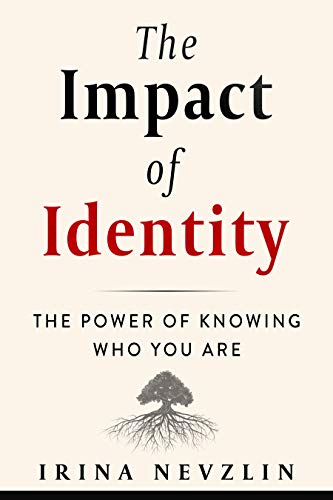What does it mean to truly know who you are in a world that’s constantly changing? In her insightful book, Irina Nevzlin addresses this deep question, offering a unique perspective shaped by her own journey.
Growing up as a Jewish child in Soviet Russia, Irina’s Jewish roots were suppressed under a regime that sought to enforce a unified Soviet ideology. It wasn’t until she attended a Jewish school that she began to uncover her heritage, allowing her to thrive and grow. Her story continues as an immigrant to London and eventually to Israel. Along the way, she embraced the challenges of adapting to new cultures while staying true to her roots. Through her experiences, she invites readers to adopt the resilient mindset of an immigrant—even within their own countries.
Key Themes and Insights
One of the strongest themes in the book is the ongoing process of self-discovery rooted in family and ethnic heritage. Irina points out that our backgrounds are one of the things we cannot change, and embracing these roots provides an anchor in an ever-shifting world. Yet she encourages us to continue exploring and adapting our past into our present and future selves.
Irina takes readers on a journey through the significant societal shifts brought about by the Agricultural Revolution, the Industrial Revolution, and now the Information and Communication Revolution (the Internet). She thoughtfully addresses globalism versus tribalism and the complexities of nationalism, highlighting both their positive and negative aspects.
In the realm of self-help, Irina advocates for a positive, proactive mindset—taking responsibility for one’s life and avoiding a victim mentality. While we cannot choose the circumstances of our birth or where our family placed us, but we have the power to decide where we go from here. She shines a light on the success stories of immigrants like herself, who chose a new nation and culture and overcome challenges that most people never even attempt. In the process of learning a new language, culture, and society, immigrants hone their decision-making skills, keep their minds sharp, and develop amazing levels of resilience. Even if we’re not immigrants, we can emulate their journey by stepping out of our comfort zones, learning new languages, and cultivating critical thinking skills.
Personal Perspective
I was drawn to this book due to my deep interest in identity development, particularly during the formative early and teenage years. However, Irina’s insights reminded me that identity formation is a lifelong journey. As an American who grew up in Latin America, married a Korean, and now lives in Korea, my experience validates much of what she says. Like Irina, I reject the notion of a homogenized multiculturalism that dilutes individual cultural identities into a bland “global citizen” mindset. At the same time, I oppose xenophobic tendencies that idealize a past of cultural or ethnic uniformity and reject an openness to learn, change, and grow.
Her message is clear: we can embrace our roots while remaining open to new experiences. We are in fact made better by this process of learning and pushing ourselves outside of what is familiar and comfortable, but this does not have to mean a rejection of our roots!
Conclusion and Recommendation
Overall, I rate this as an excellent, short, yet thought-provoking read. From my Christian viewpoint, I disagree with a few minor points, but the overall positives far outweigh these. Irina seems to be secular but is open to religious expressions, such as the Shabbat meal she celebrates with her husband every week. This book is a healthy reminder to take personal responsibility and embrace a growth mentality.
This book is also a good counterbalance to popular self-help ideas that focus exclusively ond self-determined identity. While Irina encourages personal choices and exploration, she encourages embracing the culture, tribe, and legacy of those who formed us as well. In a world where social media often promotes the idea that the self is all that matters, her perspective is a much-needed reminder (as social science has shown over and over) that connectedness brings deeper meaning, purpose, and happiness than self-focus ever could.
I recommend this book to anyone interested in navigating the interplay between our past and the complex realities of modern life, as we go through the never-ending journey of forming our identity. It’s a concise yet profound exploration of how knowing who we are can give us confidence and strength to face the future with openness and resilience.

Be First to Comment